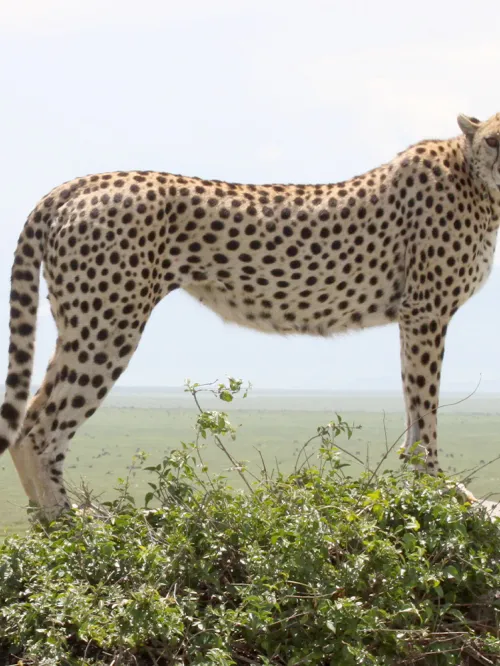Our work in Africa
Humane World for Animals tackles the root causes of animal cruelty and suffering to create permanent change. We make change at scale, advocating for policy change at all levels of government and working with companies so that they can be kinder to animals their businesses impact. We work in partnership with communities, bringing diverse expertise to the most complex issues, and doing it all with a compassionate and welcoming approach.
Our impact
We envision a world without animal cruelty, where humans and animals coexist peacefully. In Africa, we work to promote non-lethal solutions to human-wildlife conflicts, improve the lives of animals raised for food, end the illegal wildlife and captive big cat trade, advocate for a more plant-forward food system, increase access to spay/neuter services and primary veterinary care for companion animals, ending cosmetics animal testing and helping animals in disaster situations.
outside Kruger National Park have received an immunocontraceptive vaccine
have a permanent home at our sanctuary in Liberia
in South Africa have been sterilized through our Healthy Pets, Healthier Communities initiative
Latest News
Rhino Horn Trade
Rhino horn is a highly valued commodity, used in Traditional Chinese Medicine in East Asian communities around the world. Made of keratin, the same substance in human hair and nails, the horn has no proven medicinal value. However, it has been used
Threats to Rhinos
Although habitat loss is an important consideration when evaluating the decline in rhino populations, the main threat comes from poaching. Rhino horn is a highly valuable commodity, used in Traditional Chinese Medicine in China, Vietnam and other parts of East Asia. Recent
Toro de la Vega Fiesta
Update, December 15, 2016: The Spanish Constitutional Court unanimously confirmed the prohibition of the public killing of El Toro de la Vega (and all bulls used fiestas apart bullfights). The Court rejected the City Council’s challenge of the ban on the basis
Free Trade Agreements and the European Union
The European Union is often regarded as a world leader in animal protection issues, and is also one of the largest players in global trade in the world. The EU incorporates provisions on animal welfare, sustainable development, and environmental protection into its
Seal Slaughter in Namibia
The seal slaughter in Namibia is one of the world’s largest remaining commercial seal hunts. In recent years, the annual hunting quota has been set at 85,000 pups and 7,000 adult bulls. However, the Namibian authorities are notoriously secretive about the hunt
Bullfighting: Animal Cruelty Never Justified as Cultural Privilege
Bullfighting -- a horrible spectacle of animal abuse that ends in the slow and tortuous death of an animal provoked and repeatedly gored with knives and swords -- is justly in decline. The torment and stabbing to death of animals for amusement
Rodeo Shows Planned for Beijing Likely Postponed
by Peter Li Update, August 31, 2011: The China Daily published a story confirming postponement of the planned rodeo events until at least spring 2012. Two American companies, ZZXY Entertainment and Less is Forever More, have been criticized by 71 Chinese animal
Volunteer with Wildlife Programs
Volunteering at a wildlife rescue center can be a great opportunity to gain experience working with and caring for animals. It is also an excellent way to support your favorite wildlife causes, as income from paying volunteers is often a major source
Don't Buy Wild: Products, food & exotic pets
It is likely that when traveling, you will want to purchase unique items or sample local/exotic cuisine to enhance your experience and create lasting memories. It is important to be well-informed so that your choices do not harm wildlife. Products & souvenirs
Help us end animal cruelty
Start saving lives today by making a one-time gift—or protect animals worldwide all year long with a monthly contribution.
